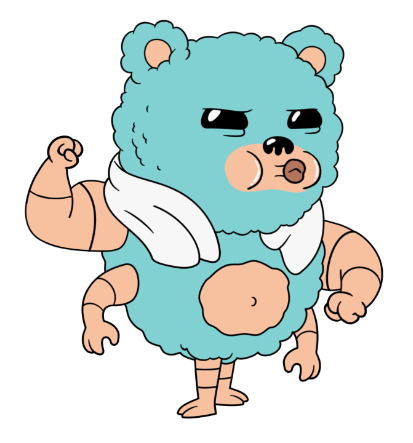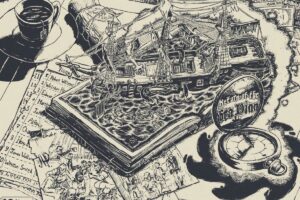When a cult Brazilian cartoon is slated to become a global video game, the localization journey goes beyond simply addressing technical processes to tackling deeper emotional, creative, strange, and intriguing challenges.
This is the story of the journey behind Jorel’s Brother and the Most Important Game of the Galaxy, developed by Double Dash Studios and localized by Terra. What started as a regionally beloved cartoon series evolved into a multilingual gaming experience that now resonates with players around the world.
The project was recently presented at Gamescom LATAM’s second official edition, held in São Paulo. The panel featured insights from Terra’s Business Development Manager, Alexis Biro, and Double Dash Studios’ Co-founder and Creative Director, Jandê Saavedra Farias, as they offered a look inside the creative choices that brought the game to life in both English and Latin American Spanish.
From Cult Classic to Global Game
The cartoon that started it all, Irmão do Jorel, is one of the most iconic animated series in Latin America. As the first original show in the region to be produced by Cartoon Network, Jorel’s Brother was quickly beloved for its absurdist humor, fast-paced dialogue, and rich visual gags. Given its many dimensions, the show presented a unique localization challenge from the start.
The game adaptation of Irmão do Jorel had a key goal: to feel like a playable episode to its audience. But its developers and localization team also had a bigger ambition: to achieve the IP’s first official launch in English-speaking markets. That meant creating something that would resonate with new audiences, without losing the identity that longtime fans cherished.

The Localization Goals
Together with the developers at Double Dash Studios, Terra set out to:

- adapt the Brazilian humor and tone of the series, originally created in Portuguese, into English and Spanish LATAM,
- remain consistent with pre-existing translations and character identities where they were identified,
- localize thousands of lines of dialogue and keeping them fun, punchy, and immersive,
- support the development team with queries, creative rewrites, and cultural insights, and
- build and utilize workflows that kept every team member aligned, even across multiple languages and cultural frames.
Achieving these goals meant that localization couldn’t be done in a vacuum. The process had to be baked into the game’s development from the start, with teams aligned on tone, timelines, and creative intent. That early collaboration helped transform Irmão do Jorel’s localization into something more than a process. Put more accurately, the localization became part of the game’s DNA.
Preserving Soul, Humor, and Heart
As teams set forth, it was clear that beyond naming conventions or string limits, this localization effort had to carry the show’s soul—its sense of chaos, whimsy, and deeply Brazilian humor—into two new linguistic worlds.

Excellent examples of this deeply creative process can be found throughout the game in characters’ names, its universal tones, wordplay, and cultural adaptation. Take the character Klebinho, for instance. In Portuguese, his name is a diminutive that sounds soft and affectionate. The localized English version, Lil’ Kleb, preserved that same feeling. “We wanted it to sound like a nickname your best friend might give you,” said Nicolas Sales, one of the game’s translators. “Something that felt casual but close,” he added.
In a gym scene, the iconic line “Ei, que isso, franguinho?” was reimagined as “Bro, do you even lift?”, which referenced a globally recognized gym meme. “The idea was to keep the punchy attitude, but in a way that made instant sense to non-Brazilian audiences,” Nicolas explained.
Wordplay was everywhere in the series—and so needed to be a part of the game, too. In Portuguese, the pun-heavy Jogos Olímpicos Pulgueses became the O-Flea-mpic Games in English. And “Vida loka aos vida longa” was transformed into “Livin’ la vida loca”—a pop reference that retained a similar tone and rhythm to the original. “We weren’t just translating a phrase,” said Nicolas, “we were translating the feeling it evoked for players.”

Cultural adaptation played a major role in the Spanish LATAM version of the game, too. Brazilian-specific foods like hot dogs with mashed potatoes, which has both its fans and detractors across the country, were replaced with pizza with pineapple—a similarly polarizing food combo that was guaranteed to spark debate across Latin America. “I figured the original combo wouldn’t land the same way,” said Paula Bonaparte, who led many of the game’s Spanish adaptations. “But pizza with pineapple? That’s controversial everywhere.”
Even meme-style lines got a new life through localization. The iconic brag “Aqui a gente constrói fibra!” (“Here we build fiber!”) became “¡Tengo más fibra que un cereal!” (“I have more fiber than a cereal!”), which preserved the original humor while localizing the reference. “It’s not about being literal, but being understood and enjoyed,” Paula said.
When Wordplay Isn’t Just a Joke
Often, the localization of wordplay required something a little different for each version. In a scene with Rambozo—a clown-soldier hybrid—the original Portuguese dialogue hinted at bribery with the phrase “faz-me rir” (“make me laugh”), which players eventually realize means he’s looking for a joke, not a monetary bribe.

In English, this concept was clarified by the term “payoff”, which captured both the setup and the punchline in a compact phrase. For Spanish LATAM, Paula adapted the line to “Podrías intentar comprarme con una sonrisa…” (“You could try buying me with a smile”). “It was playful, light, and made sense for a clown’s tone,” she explained.
The localization had to preserve the joke’s functionality while making it land culturally. In Paula’s words, “You’re guiding the player to a solution without spelling it out, so the rhythm of the exchange had to stay tight, witty, and clear.”
Localizing a Rap Battle
One of the most intriguing elements to be localized in this game was the scene in which Jorel’s brother faces off in a rap battle with a character voiced by Brazilian rapper Leandro Roque de Oliveira, also known as Emicida.
The game’s translators had their work cut out for them. Rhymes, rhythm, tone, and timing all had to line up—in two new languages—in a scene that isn’t just filler. It’s a beat-for-beat lyrical showdown, complete with setups, punchlines, and the cadence of classic hip hop.
In the end, the localization team’s solution wasn’t a direct translation. Instead, they rewrote each rap line to fit the beat while maintaining the character dynamics and punchline flow.
“It needed to feel like rap—not just sound like a translation of one,” said Jandê. “The linguists didn’t just translate. They approached the text with full creative intent.”
Steve Mau and the Power of Creative Trust

Not every localization decision is made by consensus. That was certainly true for Irmão do Jorel. One of the more debated choices was the game’s portrayal of the character Steve Mau, who is a parody of Steven Seagal mixed with a regional Brazilian in-joke. The Terra team suggested alternatives that might resonate better internationally—but the developers insisted on keeping the original character as he was.
“They were very protective of that name,” said Alexis Biro. “Their stance was: if global audiences can embrace something as specific as Mickey Mouse, they can embrace Steve Mau.”
Sometimes, localization is about compromise. And sometimes, compromise means honoring the original vision, even if it means letting some jokes stay slightly cryptic.
The Process That Made It Work
To bring Irmão do Jorel to English and LATAM Spanish-speaking audiences, we couldn’t adopt a plug-and-play localization approach. Nevertheless, underpinning all the unique adaptation challenges, there existed a solid process. The localization of this game was an active and creative collaboration with Double Dash Studios from the beginning, in which aligning style, tone, and context were aims from Day 1. Along the way, our collective assets included:
- visual references for every line
- contextual notes on character emotion and intent
- shared glossaries and terminology guidelines
- ongoing query sheets and check-ins

A key example of these assets at work involved the Microwave Warriors toy store scene. “We noticed, thanks to the Excel sheet, that Jorel’s brother was getting more and more excited with each line,” recalled Alexis. “That let us match tone and energy in the translations,” Alexis shared.
Along the way, character actions, mood changes, and visual gags were all shared with the linguists to inform how a line should feel, not just what it should say.
What We Gained from the Global Release

In addition to expanding this special game’s global reach, its localization helped introduce Jorel’s Brother to players who had never seen the original cartoon. According to Jandê, “The United States became the game’s second-largest market, despite the show not being available there.”
Some players even asked where they could watch the series. Others simply embraced the game as their first introduction to Jorel’s world.
From a production standpoint, the localization process also helped shape how Double Dash is now approaching future projects. “We’re applying everything we learned here to our next game, Shadows of Chromma Tower,” Jandê said. “We can’t wait to see how it turns out.”
The Takeaway
When a game is built on a beloved IP, what counts the most is how well its localization captures the spirit of the IP, and not just the words.
Jorel’s Brother and the Most Important Game of the Galaxy succeeded globally because localization wasn’t treated like a grocery list of items to check off, but as a core part of the game’s foundation. From the start, developers and linguists worked together to create something that felt intentional, playful, and deeply human in every language.



